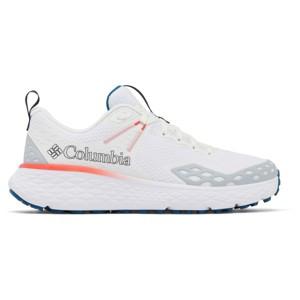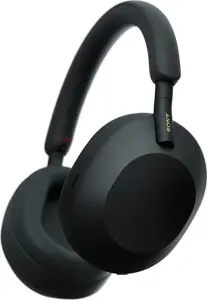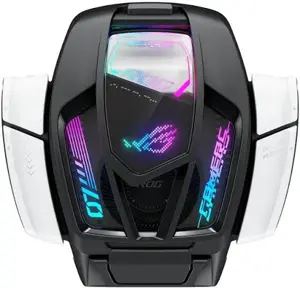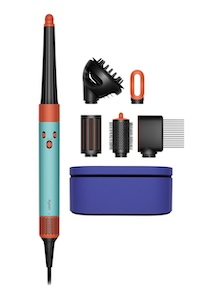
Essential customs rules and
restrictions for entering Lithuania
Traveler’s Guide by Parlaxy | Updated: July 23, 2025
Planning a trip to Lithuania—a beautiful Baltic country known for its rich history, stunning nature, and vibrant cities like Vilnius and Kaunas—comes with excitement and a few important preparations. One key aspect travelers should not overlook is understanding Lithuania’s customs regulations.
Whether you’re visiting Lithuania as a tourist, relocating for work, or entering the country for business, being informed about customs rules in Lithuania will help you avoid potential delays, fines, or the confiscation of restricted items at the border.
This updated and detailed guide covers everything you need to know about Lithuanian customs policies, including:
- Duty-free allowances for travelers
- Prohibited and restricted items you cannot bring into Lithuania
- Declaration requirements at border control
- Tips for smooth and hassle-free entry into Lithuania
By familiarizing yourself with Lithuania’s border and customs procedures, you’ll enjoy a seamless arrival and a worry-free start to your time in this dynamic and welcoming Baltic nation.

Read the full traveler’s guide — or better yet, bookmark this page for quick access later.
It could save you time, money, and avoid unnecessary hassle when passing through Lithuanian customs.
| Documents Required for Entry | For Non‑EU/EEA/Swiss Nationals: You must present a valid passport that: -Was issued within the last 10 years -Is valid for at least 3 months after your planned departure from the Schengen Area -Contains at least two blank pages for visas and border stamps If applicable, you will also need a visa. Visa-exempt countries (such as the United Kingdom, United States, Canada, Australia, Japan, and others): You may stay in Lithuania and other Schengen countries for up to 90 days within any 180-day period without a visa. All other nationalities: You are required to obtain a Schengen short-stay visa (Type C). Applications can be submitted up to 6 months in advance, and no later than 15 calendar days before your intended travel date. For EU/EEA/Swiss Citizens: A valid national identity card is sufficient for entry into Lithuania. No visa is required for short stays, tourism, or business travel. |
| Currency Export and Import Restrictions | As of 2022 bringing euros to Russia and Belarus is forbidden |
| Currency Export and Import Limits by Amount | $10,000 Amounts exceeding this must be declared. |
| Restricted Items for Import | Travelers aged 15 or older: May bring goods worth up to €430 into Lithuania duty-free. Travelers under 15 years of age: May bring goods worth up to €215 duty-free. |
| Prohibited Items for Import | Narcotics and Controlled Substances All forms of illegal drugs and controlled substances are strictly prohibited. Possession or transport may lead to criminal charges. Counterfeit Goods Importing fake or counterfeit products that infringe on intellectual property rights—such as branded clothing, accessories, electronics, and cosmetics—is not allowed. Protected Wildlife Products Products made from endangered species, including ivory, certain animal skins, coral, and exotic leathers, are banned under CITES regulations. Weapons and Ammunition The importation of firearms, explosives, ammunition, and similar items is prohibited without a special permit. Unauthorized possession is a criminal offense. Certain Food Products Entry of meat, milk, and any products containing these ingredients from non-EU countries is restricted. Exceptions are limited to sealed items such as powdered infant formula, baby food, or special dietary foods for medical use, provided they meet quantity and packaging requirements. |
| Alcohol Import Regulations | If you are entering Lithuania from a non-EU country and are 17 years of age or older, you may bring in limited quantities of alcoholic beverages duty-free, provided they are for personal use only. The current duty-free limits are: -1 litre of spirits with an alcohol content over 22% ABV (e.g., vodka, gin, whiskey) -2 litres of alcoholic beverages with up to 22% ABV (e.g., liqueurs, fortified wine, sparkling wine) -4 litres of still wine -16 litres of beer |
| Alcohol Export Regulations | No quantity or value limits for personal-use alcohol exports to other countries, including outside the EU |
| Tobacco Product Import Regulations | Travelers aged 17 and over who are arriving in Lithuania from a non-EU country may bring limited quantities of tobacco products duty-free, provided the items are for personal use. The permitted duty-free limits are: -200 cigarettes -100 cigarillos (each weighing no more than 3 grams) -50 cigars -250 grams of smoking tobacco |
| Tobacco Product Export Regulations | Lithuania does not apply specific limits on the quantity or value of tobacco products you can export for personal use. |
| Restrictions on Importing Medications and Dietary Supplements | Prescription Medications: Must be in original packaging Must be accompanied by a valid prescription or doctor’s note, preferably translated into English or Lithuanian Controlled substances (such as opioids, certain painkillers, or steroids) may require prior authorization and are strictly regulated under Lithuanian and EU law Quantity Limits: -For EU-sourced medications: Up to 12 months’ supply is generally permitted -For non-EU medications: Up to 6 months’ supply is allowed, subject to reasonableness for personal use Dietary Supplements: -Permitted if they are legally sold within the EU and clearly labeled -Supplements from non-EU countries must meet Lithuanian safety and labeling standards Items without appropriate labeling, documentation, or that are considered unsafe may be refused entry Important Notice: If you’re unsure whether a medication or supplement is permitted, declare it at customs. Undeclared, excessive, or undocumented quantities may be confiscated, and in some cases, could lead to legal consequences. |
| Restrictions on Importing Jewelry and Luxury Goods | Travelers aged 17 and over may bring jewelry, watches, designer accessories, and other luxury goods into Lithuaniaduty-free, provided the total value remains within the following limits: -€430 if arriving by air or sea -€300 if arriving by land or inland waterway These value thresholds apply per person and must cover all goods imported for personal use. If the total value exceeds the applicable limit: -You are required to declare the items at customs -You must pay Lithuanian VAT (21%) on the value above the threshold Customs duties may also apply, depending on the type and origin of the goods |
| Restrictions on Exporting Jewelry and Luxury Goods | Travelers leaving Lithuania with jewelry, watches, designer accessories, or other luxury items for personal use are generally allowed to do so without paying VAT or customs duties, as long as the items are intended solely for personal use and not for resale. |
| Restrictions on Importing Items of Artistic and Historical Value | As of June 28, 2025, Lithuania has implemented stricter controls on the import of cultural goods from outside the EU to combat illicit trade and protect cultural heritage. Categories of Cultural Goods: Category A: Cultural goods unlawfully exported from their country of origin – their import is prohibited. Category B: Cultural goods over 250 years old (such as archaeological objects and monuments) – require an import license before entry. Category C: Cultural goods over 200 years old with a value of €18,000 or more (including paintings, sculptures, manuscripts) – require an importer’s statement. All import licenses and statements must be submitted through the EU’s electronic import control system. Exceptions: Certain goods may be exempt if: Their origin cannot be reliably determined, or They were removed from their country of origin before April 24, 1972, |
| Restrictions on Exporting Items of Artistic and Historical Value | Lithuania adheres to EU regulations concerning the export of cultural goods. These rules apply to items such as artworks, antiques, manuscripts, and archaeological objects. Exporting such items without proper authorization is prohibited. See import rules – they apply here. |
| Restrictions on Importing Pets | If you plan to bring a dog, cat, or ferret into Lithuania in 2025, the following requirements apply: -Your pet must have a microchip implanted before the rabies vaccination is given. -The rabies vaccination must be administered at least 21 days before arrival. -You must carry a valid rabies vaccination certificate. Documentation: Pets must have either an EU Pet Passport or an official health certificate confirming compliance with Lithuanian import requirements. Purpose of Import: Pets must be imported for personal, non-commercial use only. Breed Restrictions: Certain dog breeds are banned from entering Lithuania, including but not limited to: -Pit Bull Terriers -Tosa Inu -American Staffordshire Terriers Customs and Veterinary Checks: Pets may be subject to inspection by customs and veterinary officials upon arrival. Preparation: It is recommended to begin preparing all documentation and vaccinations at least 30 days before travel to ensure full compliance with all regulations. |
| Restrictions on Exporting Pets | Microchip Identification Your pet must have an ISO 11784/11785-compliant microchip implanted before receiving the rabies vaccination. This microchip serves as a permanent identification method and is essential for tracking and documentation purposes. Rabies Vaccination Pets must be vaccinated against rabies by an authorized veterinarian. The vaccination must be administered at least 21 days before travel. If your pet has been vaccinated previously, ensure that the vaccination is still valid and up to date. Rabies Titer Test (if applicable) For pets traveling to certain countries, a rabies titer test may be required. This blood test, conducted at an approved laboratory, measures the level of rabies antibodies to confirm sufficient immunity. The test must be performed at least 30 days after vaccination, and the results should meet the destination country’s requirements. EU Animal Health Certificate An EU Animal Health Certificate (AHC) must be issued by an authorized veterinarian within 10 days of travel. This certificate confirms that your pet meets all health and vaccination requirements for entry into the destination country. Non-Commercial Declaration You must complete a declaration stating that the movement of your pet is for non-commercial purposes. This declaration is typically included in the AHC and must be signed by the owner. Travel Arrangements Ensure that your pet travels with you or an authorized person within five days of your departure. The transport must not involve the purchase, sale, or transfer of ownership. |
Latest news – customs rules, travel alerts & more
Earn while traveling with Parlaxy
Connect with a shopper and deliver for a fee
Parlaxy Wiki is a customs guide designed for travelers who prepare smartly. We’ve gathered all the latest information by 2025 so that the Parlaxy community has access to up-to-date customs rules and restrictions for different countries, as well as insights into popular destinations and travel tips for exploring various corners of the world. Discover the world with Parlaxy Wiki!
Parlaxy connects those who need to purchase items from another city or country with travelers planning trips to those destinations. Parlaxy is not only a convenient platform where buyers can order products from anywhere in the world and travelers can earn by delivering goods along their travel routes—it’s also a reliable source of current travel information worldwide.
Create an order if you’re shopping, or create a trip if you’re ready to earn while traveling!







